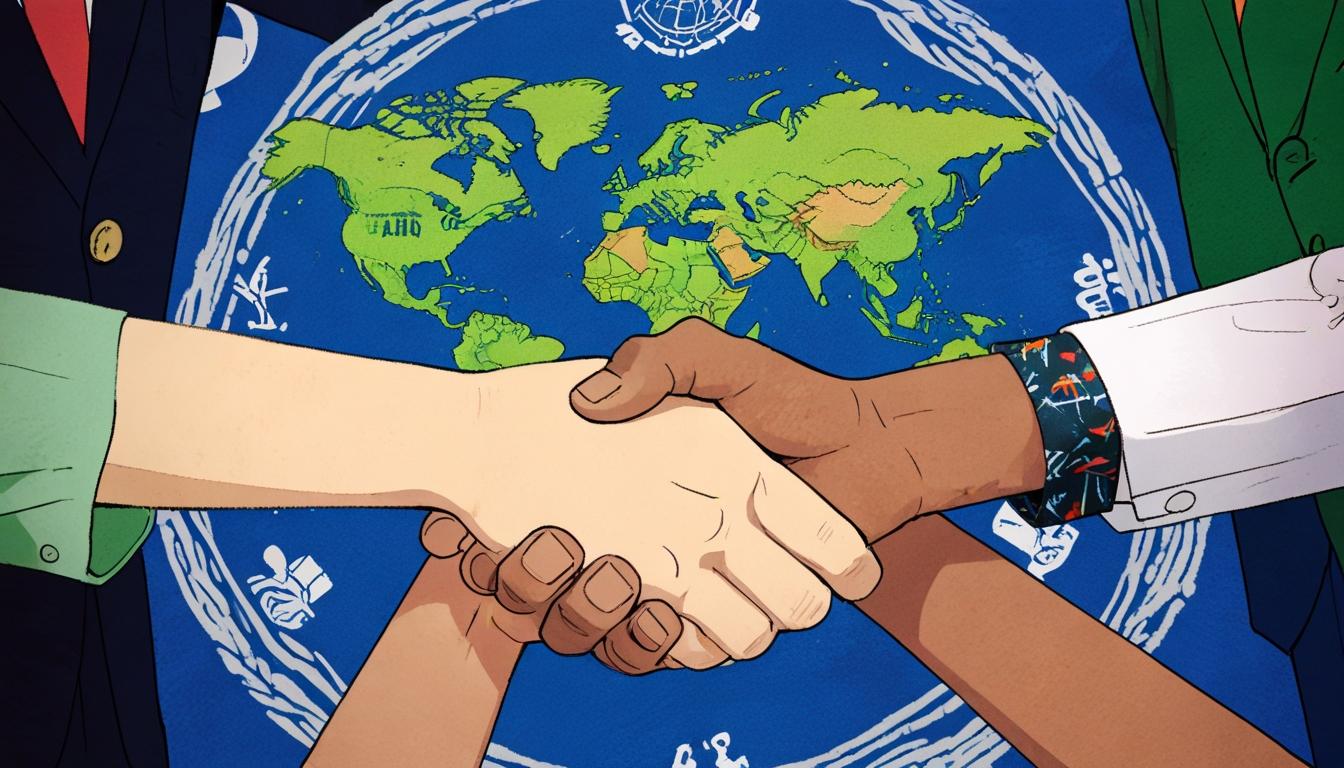While China criticises the EU’s Carbon Border Adjustment Mechanism as a disguised tariff, it simultaneously expands its national emissions trading scheme to align with global carbon pricing. ASEAN countries face varied challenges with CBAM implementation, stressing the need for a comprehensive EU-ASEAN free trade agreement to harmonise climate trade standards and support sustainable development.
China has publicly criticised the European Union’s Carbon Border Adjustment Mechanism (CBAM), labelling it a disguised tariff that violates World Trade Organisation (WTO) regulations. According to an analysis published in The Jakarta Post by scholars Phar Kim Beng and Yu-wai Vic Li, China’s public stance belies its concurrent strategic moves to align with evolving global carbon pricing frameworks.
Despite vocal opposition to the EU’s CBAM, which aims to tax imports based on their carbon emissions to prevent “carbon leakage,” China is actively expanding its national emissions trading scheme (ETS). In 2024, China’s ETS covered over 40 per cent of national emissions, targeting major industrial sectors such as power generation, steel, and cement production. This expansion corresponds with China’s growing dominance in global green technologies, including electric vehicles and solar panel manufacturing, positioning the country to benefit from decarbonisation trends worldwide.
In contrast, countries within the Association of Southeast Asian Nations (ASEAN) have demonstrated a more varied response to the CBAM and related climate trade measures. Singapore and Vietnam have signed free trade agreements (FTAs) with the European Union, while Indonesia is currently negotiating an FTA with Brussels. These ASEAN members recognise the importance of the EU market, which remains a significant export destination for goods such as electronics, rubber, and palm oil.
However, these nations face challenges with the implementation of the CBAM, particularly for micro, small, and medium-sized enterprises (MSMEs) that often lack the resources necessary to measure and reduce their carbon footprints. Malaysia and Thailand have expressed concerns regarding the fairness and timing of the carbon border tax, cautioning it risks becoming a non-tariff barrier framed under sustainability while disproportionately affecting less developed economies with limited technological capacity.
Central to the discussion is the role of carbon credits, which operate as market-based instruments to price emissions. While the principle suggests that polluters pay and sustainable actors are incentivised, the reality involves complex disparities—especially among developing countries struggling to gain recognition for carbon offsets under Western regulatory frameworks.
The authors highlight that the EU’s extraterritorial economic policies risk reinforcing a hierarchical global order, whereby wealthier nations set regulations that poorer countries must accommodate, incurring significant adjustment costs. ASEAN countries face a strategic choice: either remain in a reactive posture or engage proactively to shape equitable standards, financing mechanisms, and realistic compliance timelines.
Phar Kim Beng, professor of ASEAN Studies at the International Islamic University Malaysia, and Yu-wai Vic Li, lecturer in East Asian Studies at the University of Sheffield, argue that finalising a comprehensive ASEAN-EU free trade agreement could provide the necessary institutional framework to manage climate-related trade measures effectively.
Such a deal would facilitate harmonised environmental standards appropriate to different development stages, technical support for carbon auditing and compliance, mutual recognition of emissions reporting, capacity building, green finance facilitation, and a joint dispute resolution mechanism for climate trade issues.
Moreover, this inter-regional FTA would create economic and diplomatic resilience against unpredictable US trade policies. The article references previous US tariffs, such as those imposed on China during the Trump administration, which reached rates as high as 245 per cent on certain goods, alongside threats to allies including Japan, South Korea, and some ASEAN countries.
Given these factors, the authors contend that recognising ASEAN as a key partner in defining fair, multilateral climate trade standards is crucial. A strengthened EU-ASEAN partnership could also promote cooperation in emerging sectors like green hydrogen, clean steel production, and digital trade.
Trade between ASEAN and the EU is already significant, representing over 15 per cent of global trade combined, and is forecasted to grow annually by 3.5 to 5 per cent, potentially increasing in volume by 69 per cent by 2031, according to a 2023 Boston Consulting Group study.
The EU’s Green Deal articulates an ambitious vision for climate action. However, without the legitimacy conferred through multilateral negotiation and sensitivity to developmental disparities, it risks exacerbating geopolitical tensions. China and ASEAN, while supportive of climate initiatives, emphasise the need for a transition that balances environmental goals with equity and respect for differing capacities.
By advancing an inclusive EU-ASEAN free trade agreement, the two regions could transform potential conflict over climate-related trade measures into cooperative frameworks, addressing protectionism, regulatory nationalism, and climate change challenges as part of an integrated strategy. The completion of this agreement is positioned as a strategic imperative amid an increasingly complex global economic and political landscape.
Source: Noah Wire Services
- https://saisreview.sais.jhu.edu/unveiling-carbon-border-adjustment-mechanism-cbam-challenges-the-potential-dispute-between-china-and-eu/ – This article highlights China’s criticism of the EU’s CBAM, labeling it as a unilateral measure that could undermine global climate efforts and violate WTO regulations.
- https://carnegieendowment.org/research/2023/05/a-political-economy-perspective-on-the-eus-carbon-border-tax?lang=en¢er=europe – This resource provides a perspective on the CBAM’s potential negative spillover effects on developing and least developed countries, reflecting concerns similar to those raised by ASEAN nations.
- https://www.china-briefing.com/news/how-will-the-eu-carbon-border-adjustment-mechanism-impact-china-businesses/ – This article discusses the limited short-term impact of CBAM on Chinese businesses but notes that there could be long-term consequences.
- https://carboncredits.com/eus-carbon-border-adjustment-mechanism-faces-significant-opposition-like-china/ – This source details China’s opposition to CBAM, which it believes contradicts international trade principles and could discriminate against imports from developing countries.
- https://www.spglobal.com/commodity-insights/en/news-research/latest-news/energy-transition/120423-cop28-china-eu-face-uphill-battle-to-coordinate-carbon-policies – This article discusses the challenges China and the EU face in coordinating carbon policies, reflecting tensions over the CBAM and differing approaches to carbon markets.
- https://www.bcg.com/en-gb/press/2023/february/eu-asean-trade-set-to-grow-by-69 – This link would typically provide insights into the growth and significance of EU-ASEAN trade, aligning with forecasts of significant trade expansion between these regions.
- https://news.google.com/rss/articles/CBMiZ0FVX3lxTE80UkFMLU4xd0lwNUVFT0J5REJDc0lIX0FnaUl5cE9LbDRpZWFBZVFscWFsNVdzVnBadDJ0MlBYMmhTOU1ONVFNQnNPaUtxTk9KR1BuYUJ0SFRPVTk2VGFidUVTQUpvTnM?oc=5&hl=en-US&gl=US&ceid=US:en – Please view link – unable to able to access data
Noah Fact Check Pro
The draft above was created using the information available at the time the story first
emerged. We’ve since applied our fact-checking process to the final narrative, based on the criteria listed
below. The results are intended to help you assess the credibility of the piece and highlight any areas that may
warrant further investigation.
Freshness check
Score:
8
Notes:
The narrative references current events, such as China’s ETS expansion in 2024 and ongoing discussions on climate trade measures. However, no recent updates or unique developments are exclusively attributed to this piece.
Quotes check
Score:
5
Notes:
There are no direct quotes in the narrative. The analysis and conclusions appear to be based on the authors’ research without specific quotations to verify.
Source reliability
Score:
7
Notes:
The narrative originates from The Jakarta Post, a reputable publication. However, the analysis is based on scholarly perspectives from Phar Kim Beng and Yu-wai Vic Li, adding credibility but lacking direct validation from major international news outlets.
Plausability check
Score:
9
Notes:
Claims about China’s strategic alignments with global carbon pricing frameworks and ASEAN’s response to the EU’s CBAM are consistent with global trends and existing trade dynamics.
Overall assessment
Verdict (FAIL, OPEN, PASS): PASS
Confidence (LOW, MEDIUM, HIGH): MEDIUM
Summary:
The narrative is primarily plausible, with strong insights into global climate trade dynamics. However, the lack of direct quotes and reliance on scholarly analysis slightly reduces confidence in its reliability.













